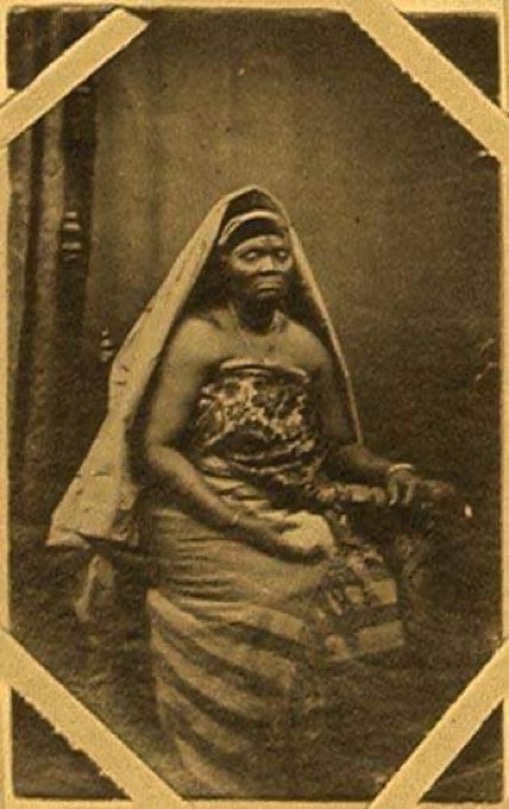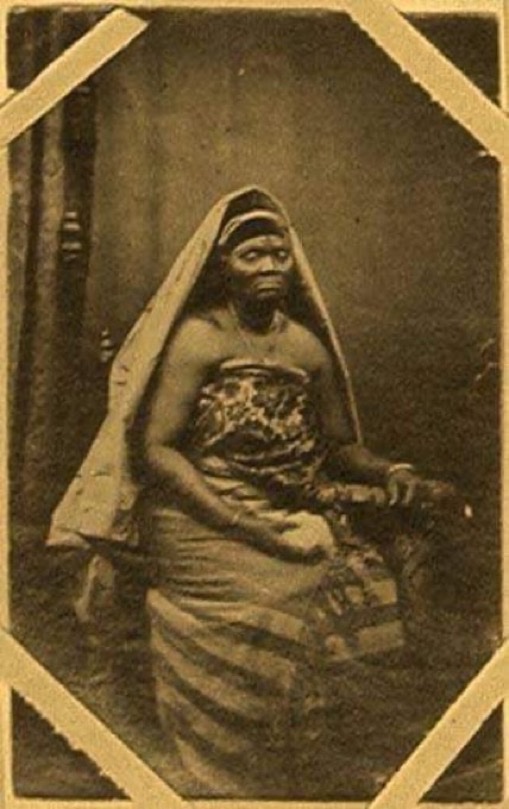Student Village Academy › Forums › GENERAL DISCUSSIONS › The woman Tinubu Square Was Named After
Tagged: tinubu
- This topic is empty.
-
AuthorPosts
-
-
January 25, 2023 at 12:20 PM #47519
 justseyiKeymaster
justseyiKeymasterThe woman Tinubu Square Was Named After
Madam Efunroye Tinubu’s Story (1810–1887)
The person after whom Tinubu Square was named.
She was a slave dealer who sold her own people to the Portuguese during the Nigerian slave trade.
EFUNPOROYE Osuntinubu Olumosa, later known as Madam Efunroye Tinubu, was a savvy businesswoman, kingmaker, and the first woman in Nigeria to rebel against British control during the colonial era. She was a prominent political figure in Lagos and Abeokuta (Egba).
Tinubu was born in 1810 in Ojokodo, now in Ogun State, and remarried to Oba Adele Ajosun in 1833 after her first husband died. She relocated to Badagry, the ancient refuge of Lagos monarchs, with the exiled Oba.
She used Adele’s connections to build a powerful business in Badagry, dealing in tobacco, salt, and slaves. Oba Adele was restored to power in 1835, but died two years later.
Tinubu had strengthened her commerce with the expatriate community, the indigenous population of Lagos and Abeokuta, and other Yoruba communities before his death.
She later remarried Yesufu Bada, aka Obadina, the battle captain of Oba Oluwole.
Tinubu wielded considerable power in the palace and was instrumental in elevating Akitoye, her brother-in-law, to the throne succeeding Oba Oluwole.
When Oba Akitoye took full control of the monarchy in 1851, he granted Tinubu favorable commercial concessions, allowing her to continue trading slaves for firearms with Brazilian and Portuguese dealers.
She also got a plot of property from him, which is now part of Tinubu Square and Kakawa Street. Tinubu wielded so much power over Akitoye that in 1853, two Lagos chiefs, Possu and Ajenia, revolted against him for granting Tinuba so much power.
With the country’s restriction on slave trafficking, Tinubu focused more on internal trade, dealing in palm oil, salt, pepper, and tobacco. By 1850, she was the most important middleman in Lagos’s interior.
Tinubu played key roles in the installation and removal of rulers. She did, however, support Dosunmu, Akitoye’s son, for the throne in 1853. Tinubu maintained a large security force made up of slaves during Dosunmu’s reign, and she sometimes carried out the king’s commands.
In 1855, she led a campaign in Lagos against the Brazilian and Sierra Leonean immigrants for utilizing their riches and power against Dosunmu and corrupting Lagos customs.
With the country’s restriction on slave trafficking, Tinubu focused more on internal trade, dealing in palm oil, salt, pepper, and tobacco. By 1850, she was the most important middleman in Lagos’s interior.
Tinubu played key roles in the installation and removal of rulers. She did, however, support Dosunmu, Akitoye’s son, for the throne in 1853. Tinubu maintained a large security force made up of slaves during Dosunmu’s reign, and she sometimes carried out the king’s commands.
In 1855, she led a campaign in Lagos against the Brazilian and Sierra Leonean immigrants for utilizing their riches and power against Dosunmu and corrupting Lagos customs.
The title put her in a position of influence, allowing her to take an active role in Egba affairs.
Tinubu was an outspoken opponent of colonial policies in Lagos. She was the first woman to take an active role in the colonial opposition to British rule.
She died in 1887. Tinubu Square on Lagos Island, a place previously known as Independence Square, is named after her. She was buried at Ojokodo Quarters in Abeokuta.
-
-
AuthorPosts
- You must be logged in to reply to this topic.




